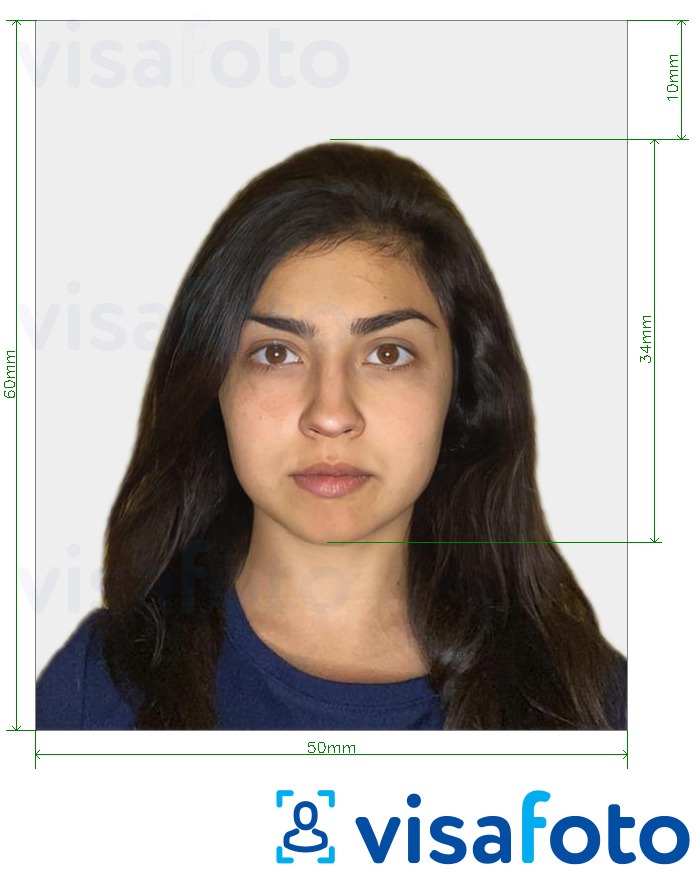Complete Guide to Turkey Visa Application in 2026

Is a visa needed to travel to Turkey? — The necessity for a visa to enter Turkey is determined by your nationality and the reason for your visit.

Our guide simplifies the entire process, detailing the different types of Turkish visas and the steps to apply. It's designed to assist tourists, business travelers, and those planning extended stays in navigating their travel preparations.
Table of contents
- Who needs a visa for Turkey in 2026?
- Turkey visa categories and requirements
- Turkey e-visa process
- Documents required for Turkey tourist visa application (online and at the consulate)
- Turkish visa photo requirements
- Get your Turkish visa photo online!
- Turkey Visa Photo App
- Turkey visa fees
- Turkey visa processing time
- Extension and overstay rules
Who needs a visa for Turkey in 2026?
Is a visa needed to enter Turkey? Before planning a trip to Turkey or applying for a Turkish visa, it's important to check if you require a visa or if you are exempt.
List of visa-exempt countries
Citizens from the following countries can enter Turkey without a visa and can stay for up to three months within a six-month period, whether continuously or with breaks:
- Albania
- Andorra
- Argentina
- Belize
- Bolivia
- Bosnia and Herzegovina
- Brazil
- Bulgaria
- Chile
- Colombia
- Czechia
- Denmark
- Ecuador
- El Salvador
- Estonia
- Finland
- France
- Georgia
- Germany
- Greece
- Guatemala
- Honduras
- Hong Kong
- Hungary
- Iceland
- Iran
- Israel
- Italy
- Japan
- Jordan
- Kazakhstan
- Kosovo
- Kuwait
- Kyrgyzstan
- Lebanon
- Liechtenstein
- Lithuania
- Luxembourg
- Malaysia
- Moldova
- Monaco
- Montenegro
- Morocco
- New Zealand
- Nicaragua
- North Macedonia
- Panama
- Paraguay
- Peru
- Qatar
- Romania
- Saint Kitts and Nevis
- San Marino
- Serbia
- Seychelles
- Singapore
- Slovakia
- Slovenia
- South Korea
- Sweden
- Switzerland
- Tajikistan
- Trinidad and Tobago
- Tunisia
- Ukraine
- United Kingdom
- Uruguay
- Uzbekistan
- Vatican City
- Venezuela
Citizens of Russia can enter Turkey without a visa and remain for up to 90 days in a 180-day period, as long as each visit doesn't exceed 60 days.
Meanwhile, people from Azerbaijan, Belarus, Brunei, Costa Rica, Macao, Mongolia, Thailand, and Turkmenistan can stay in Turkey for up to 30 days per visit, with a total of 90 days in any six-month period.
If you are a national of one of the following countries, you can enter Turkey without a visa under the following conditions:
- If you are a citizen of Cyprus and reside in Northern Cyprus, arriving directly from Ercan International Airport or the seaports in Famagusta, Kyrenia, or Karavostasi, you can stay up to 90 days within a 180-day timeframe.
- If you are a Libyan national aged under 13 or over 65, you are allowed to stay in Turkey for up to 90 days within a six-month period.
- If you are a Palestinian holding a VIP passport, you can enter Turkey visa-free.
Countries eligible for an e-visa
Nationals from specific countries have the option to apply for an e-Visa, which is suitable for tourism and business visits only. Head to the official Turkish e-Visa portal, click on “Main Page > Apply", and select a country or region to see the Turkey visa requirements by country and whether you qualify for an e-visa.
For example, in 2026, citizens from the following 40 countries and regions can obtain e-Visas online. For most, the allowed stay is up to 90 days within a 180-day period, though for some, it might be limited to 30 days.
- Antigua and Barbuda
- Armenia
- Australia
- Austria
- Bahamas
- Bahrain
- Barbados
- Belgium
- Canada
- China
- Croatia
- Cyprus
- Dominica
- Dominican Republic
- Timor-Leste
- Fiji
- Grenada
- Haiti
- Indonesia
- Ireland
- Jamaica
- Maldives
- Malta
- Mauritius
- Mexico
- Netherlands
- Norway
- Oman
- Poland
- Portugal
- Saint Lucia
- Saint Vincent and the Grenadines
- Saudi Arabia
- South Africa
- Spain
- Suriname
- Taiwan
- United States
Additionally, passport holders from the following 63 countries and territories can apply for a single-entry e-Visa for tourism and business, which permits a stay of up to 30 days in Turkey:
- Afghanistan
- Algeria
- Angola
- Bangladesh
- Benin
- Bhutan
- Botswana
- Burkina Faso
- Burundi
- Cambodia
- Cameroon
- Cabo Verde
- Central African Republic
- Chad
- Comoros
- Ivory Coast
- Djibouti
- Democratic Republic of the Congo
- Egypt
- Equatorial Guinea
- Eritrea
- Ethiopia
- Gabon
- Gambia
- Ghana
- Guinea
- Guinea-Bissau
- India
- Iraq
- Kenya
- Lesotho
- Liberia
- Libya
- Madagascar
- Malawi
- Mali
- Mauritania
- Mozambique
- Namibia
- Nepal
- Niger
- Nigeria
- Pakistan
- Palestine
- Philippines
- Republic of the Congo
- Rwanda
- Sao Tome and Principe
- Senegal
- Sierra Leone
- Solomon Islands
- Somalia
- Sri Lanka
- Switzerland
- Tanzania
- Togo
- Uganda
- Vanuatu
- Vietnam
- Yemen
- Zambia
- Zimbabwe
Citizens from these countries must satisfy the following conditions:
- Hold a valid visa or residence permit from a Schengen Area country, Ireland, the UK, or the US. Citizens from Gabon and Zambia are exempt from this requirement.
- Travel to Turkey with an airline approved by the Turkish Ministry of Foreign Affairs. Nationals from Afghanistan, Bangladesh, India, Pakistan, and the Philippines are not required to meet this condition.
- Have a confirmed hotel reservation and sufficient financial resources.
- Algerian citizens must be between 18 and 35 years of age.
Countries requiring a sticker visa or a consular application
Individuals from countries not eligible for an e-Visa or visa-free travel must submit an application for a sticker visa at a Turkish consulate.
Turkey visa categories and requirements
Turkey provides a range of visa types to cater to various travel needs and intentions:
Short-term Visas (Category C)
These visas allow for visits of up to 90 days within a 180-day period.
- Tourist Visa. Ideal for travelers exploring Turkey for vacation or sightseeing. It can be secured online for eligible nationalities or upon arrival at the border.
- Business Visa. Designed for those attending meetings or professional events. The duration of stay is specified on the visa.
- Family Visit Visa. For individuals visiting relatives or friends in Turkey, requiring a letter of invitation from a host in Turkey.
- Cultural and Sports Activity Visa. Available for participants in cultural or sports events, who need an official invitation from a recognized Turkish organization.
- Short-term Education Visa. Targeted at students partaking in short courses or training programs, necessitating an invitation from the educational institution.
Long-term Visas (Category D)
Suitable for stays longer than 90 days.
- Student Visa. Necessary for international students enrolled in Turkish schools or universities, who must provide an acceptance letter.
- Work Visa. For individuals intending to work in Turkey. The employer must submit a visa application on the employee's behalf, and it requires approval from the Ministry of Labour.
Other visa types
- Official/Diplomatic Visa. Issued to government representatives and diplomats on official assignments.
- Medical Visa. For those receiving medical treatments in Turkey.
- Family Reunion Visa. For relatives of Turkish citizens or residents who wish to join their family in Turkey.
Do I need a transit visa for a layover in Turkey? — Whether you need a transit visa in Turkey during your layover depends on several factors, including your nationality and travel plans:
When a Transit Visa is not needed:
- Staying at the airport. If your layover involves staying within the airport's transit area and you do not go through Turkish immigration, you won’t require a transit visa.
- Visa-exempt nationals. If your nationality is on Turkey’s visa exemption list, you don't need a transit visa even if you plan to leave the airport.
When a Transit Visa is required:
- Leaving the airport. If you plan to exit the airport during your layover or need overnight accommodation, you must obtain a transit visa.
- Countries requiring a visa. Travelers from nations that require a visa to enter Turkey, such as India, Afghanistan, and Nigeria, will need to apply for:
- A Turkish e-Visa, if you qualify, for short stays.
- A sticker visa via the consulate for longer visits or specific reasons.
- Certain nationalities, like Indian travelers connecting to particular destinations, might need a Transit Visa even if they don’t intend to leave the airport premises.
Turkey e-visa process
Follow these steps to apply for a Turkey visa online:
- Go to the Turkish e-Visa portal.
- Fill out the form. Select your nationality and the type of travel document, then enter your personal information and travel dates.
- Use a credit or debit card to pay the visa fee, which can vary based on your nationality and the processing time.
- After submitting your application, you’ll get an email notification. Processing typically takes a few hours, but times may vary.
- Once approved, download and print your e-Visa to present when you arrive in Turkey.
How can I check a Turkey visa status online? — Follow the instructions below:
- Access the official Turkish e-Visa website and navigate to the “Ongoing Application” section under the “Application” tab.
- Provide your reference number, passport number, and the email address used for the application.
- Complete any required steps to verify your identity.
- After entering the details, you’ll see the current status of your e-Visa application on the screen.
Where can I find a Turkey visa number? — That depends on the type of visa you have:
- e-Visa: The visa number can be found at the top of the e-Visa document sent to you via email upon successful application. It’s important to print out and take this document with you when you travel.
- Sticker Visa: For visas issued in your passport by Turkish consulates, the visa number is printed on the visa sticker itself.
- Residency Permit or ID: If you have a Turkish residency card or an ID, the visa number might be associated with your Turkish ID number, which generally starts with "99". This can be accessed through Turkey's e-Devlet online system.
Documents required for Turkey tourist visa application (online and at the consulate)
Below is a list of the documents needed for Turkey visa applications:
For online e-Visa applications:
- Your passport, which is valid for at least six months beyond your intended arrival date.
- Your email address.
- A credit or debit card is needed to pay the application fee.
- Provide details of your travel itinerary, such as flights or accommodations.
For consulate applications:
- A completed, printed, and signed application form.
- Your passport, which is valid for at least six months and has at least two blank pages.
- Two recent passport-sized photos.
- Travel health insurance.
- Flight itinerary.
- Accommodation proof: booking confirmation or a notarized invitation letter from the hosts.
- Bank statements or payslips to show sufficient funds.
- If applying from a different country, you may need a valid residence permit.
Additional documentation:
- Invitation letter: needed if staying with friends or family, including the host’s ID and address.
- Cover letter: an explanation of your visit’s purpose, particularly for consulate applications.
- Copies of past visas: such as Schengen, U.S., or U.K. visas.
- If traveling with family: submit marriage or birth certificates as well as consent letters from any non-traveling parent.
Turkish visa photo requirements
When applying for a visa in person, make sure to submit printed photos that comply with the 2026 Turkish visa photo requirements:
- The Turkey visa photo size in inches should be 2×2.4. Thus, the Turkey visa photo size in mm is 50×60.
- It should be a plain white background, free from shadows or any other objects.
- Your face should occupy about 70% of the photo.
- The photo must accurately represent your natural complexion.
- Your eyes should be open and facing directly towards the camera.
- Maintain a neutral expression.
- Both your face and ears should be fully visible. If you have long hair, tuck it behind your ears.
- Headgear is not allowed except for religious reasons, but it must not cast shadows or obscure any facial features.
- Ensure the photo is high-quality with no blur or pixelation.
Here is an example of a photo:

Get your Turkish visa photo online!
One of the most reliable ways to get a Turkish visa photo is by using online tools designed specifically for this purpose. Visafoto has been providing services since 2013 and is equipped to meet the photo requirements for passports, visas, and other identification across the globe.
Take a photo following the guidelines and upload it to Visafoto. The service will adjust the format, background, size, and dimensions as required. You will also receive a digital copy suitable for online submission and a print-ready version.
Example of the photo you can take:

The photo after edition with Visafoto


If you’re unhappy with the results, we’ll offer free photo replacement or a full refund if rejected by officials.
Turkey Visa Photo App



The 7ID app from Visafoto.com is another professional tool for creating document photos. This advanced app works on both iPhone and Android devices, making it accessible for everyone.
Simply upload your photo and choose the type of document and country, and the app will handle the rest. The app ensures your photo meets the proper specifications, including size, format, and background color, and makes sure your face and eyes are correctly aligned.
You will get a digital version and a print template that fits common paper sizes like 4×6, A4, A5, or B5. For any questions or assistance, our technical support team is available 24/7 to assist you.
Turkey visa fees
The cost of a Turkish e-Visa varies depending on your nationality, with prices ranging from USD 15 to USD 60. To determine the exact fee for your visa, visit the official Turkish e-Visa website. Click “Apply” on the homepage and select your country from the list to see the applicable cost.
Turkey visa processing time
Getting a Turkish e-Visa is typically a fast process, often completed within a few hours, though it can sometimes take a couple of days. On the other hand, the Turkey visa processing time through a consulate is usually around 15 days. For student and work visas, the processing time can extend to approximately 25 days.
Extension and overstay rules
Turkey's multiple-entry visa validity is typically 180 days from the date of issue, similar to a single-entry visa, but the total stay within this period must not exceed 90 days. If you have a visa-free entry, you’re also allowed to stay for up to 90 days within any 180-day period. If you plan to stay beyond this limit, you must apply for a residence permit.
You cannot extend a Turkish e-Visa online. If you wish to remain longer, you typically need to exit Turkey and apply for a new e-Visa. For those with a residence permit, it’s important to apply for an extension at least 60 days before it expires. This process involves updating your personal information and going through the appropriate authorities.
If you overstay your Turkish visa, you may face fines, deportation, or even a ban on re-entering Turkey for a specified time.
Last updated: 2026-01-20
